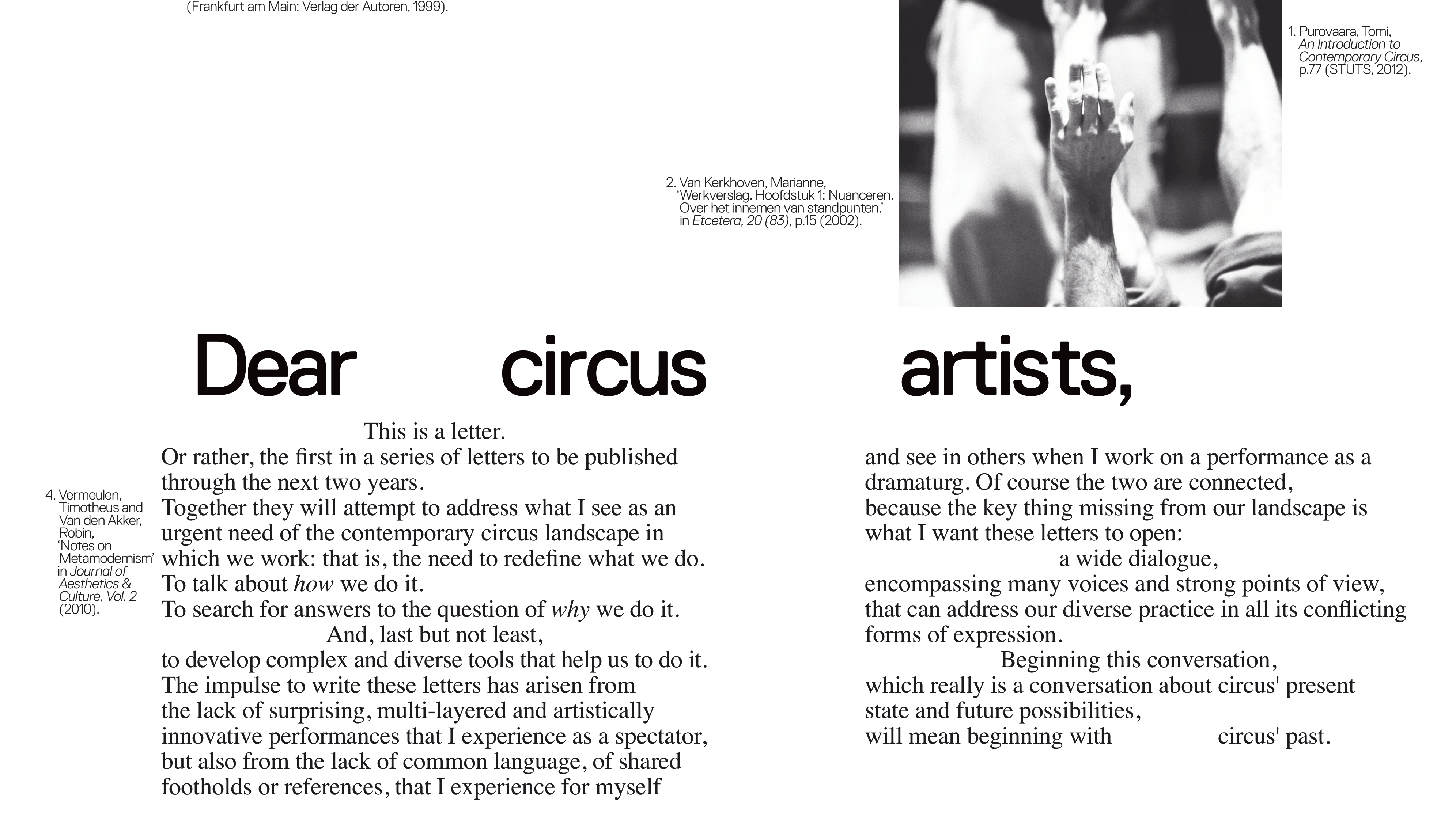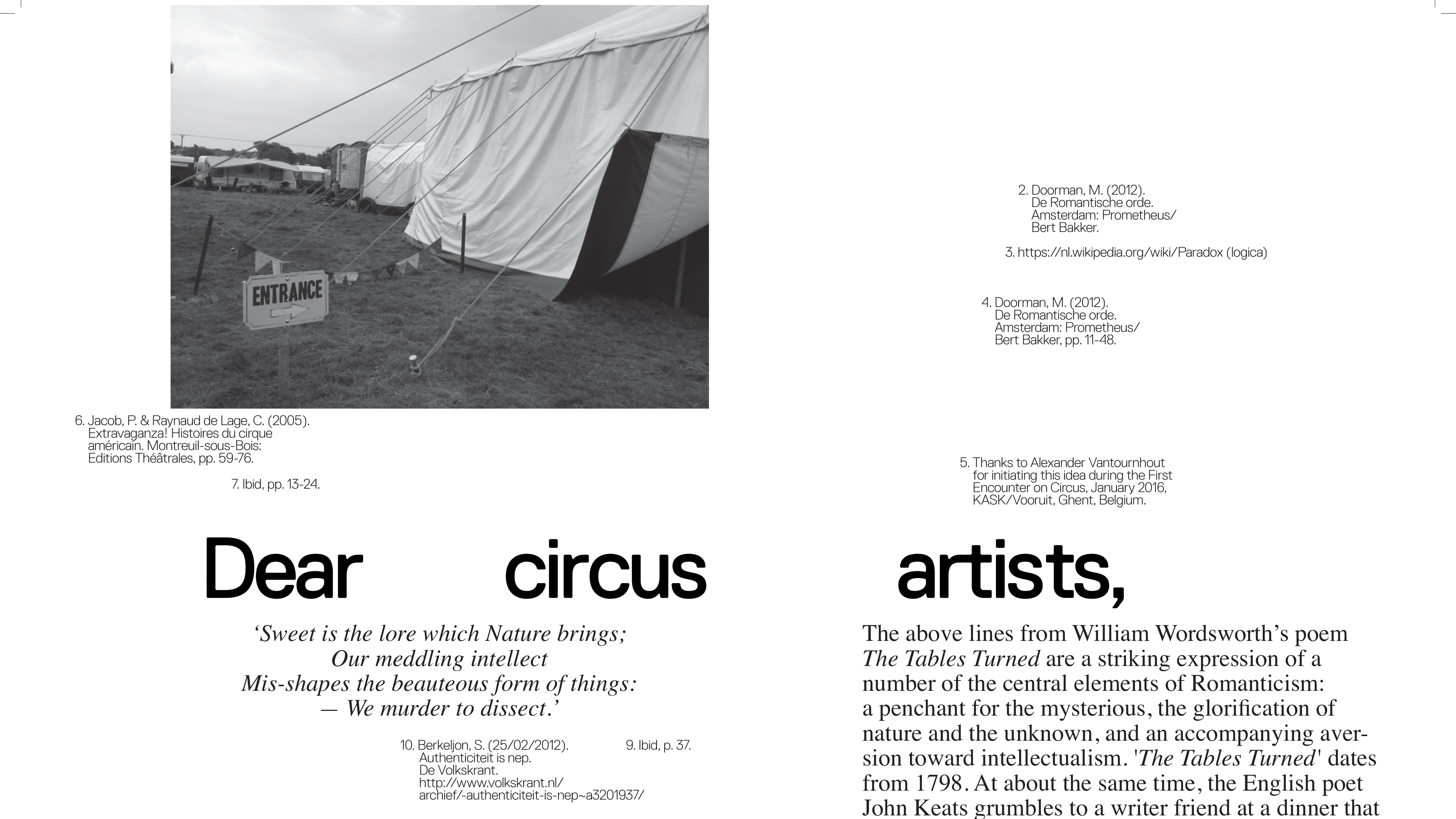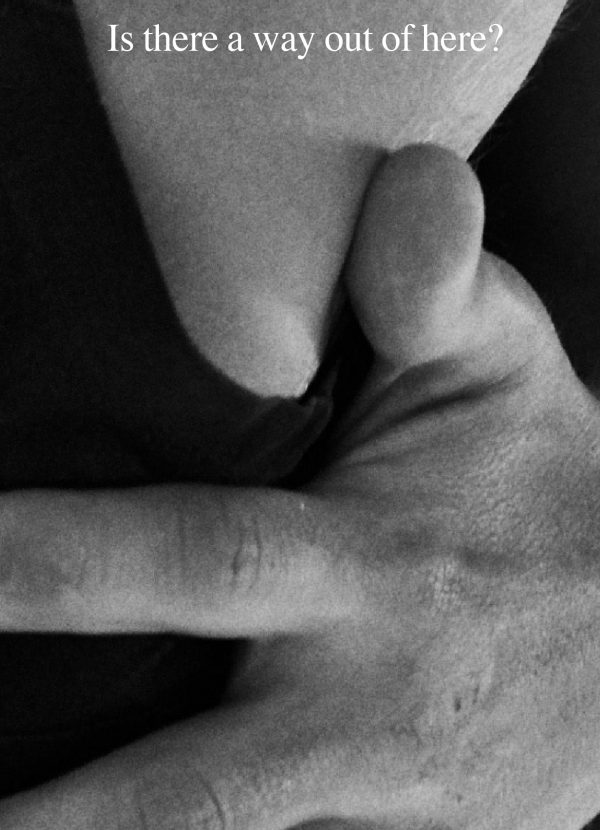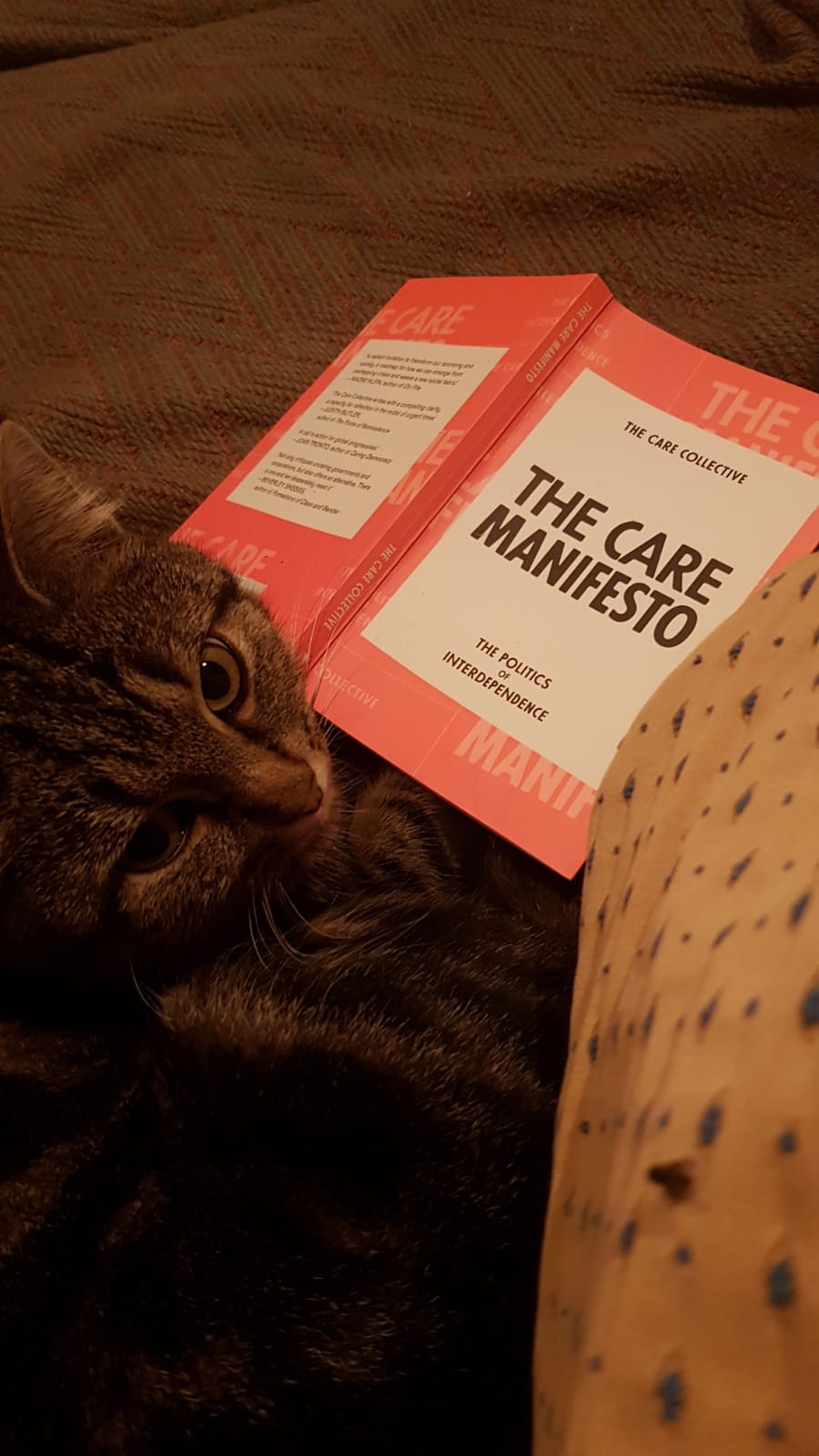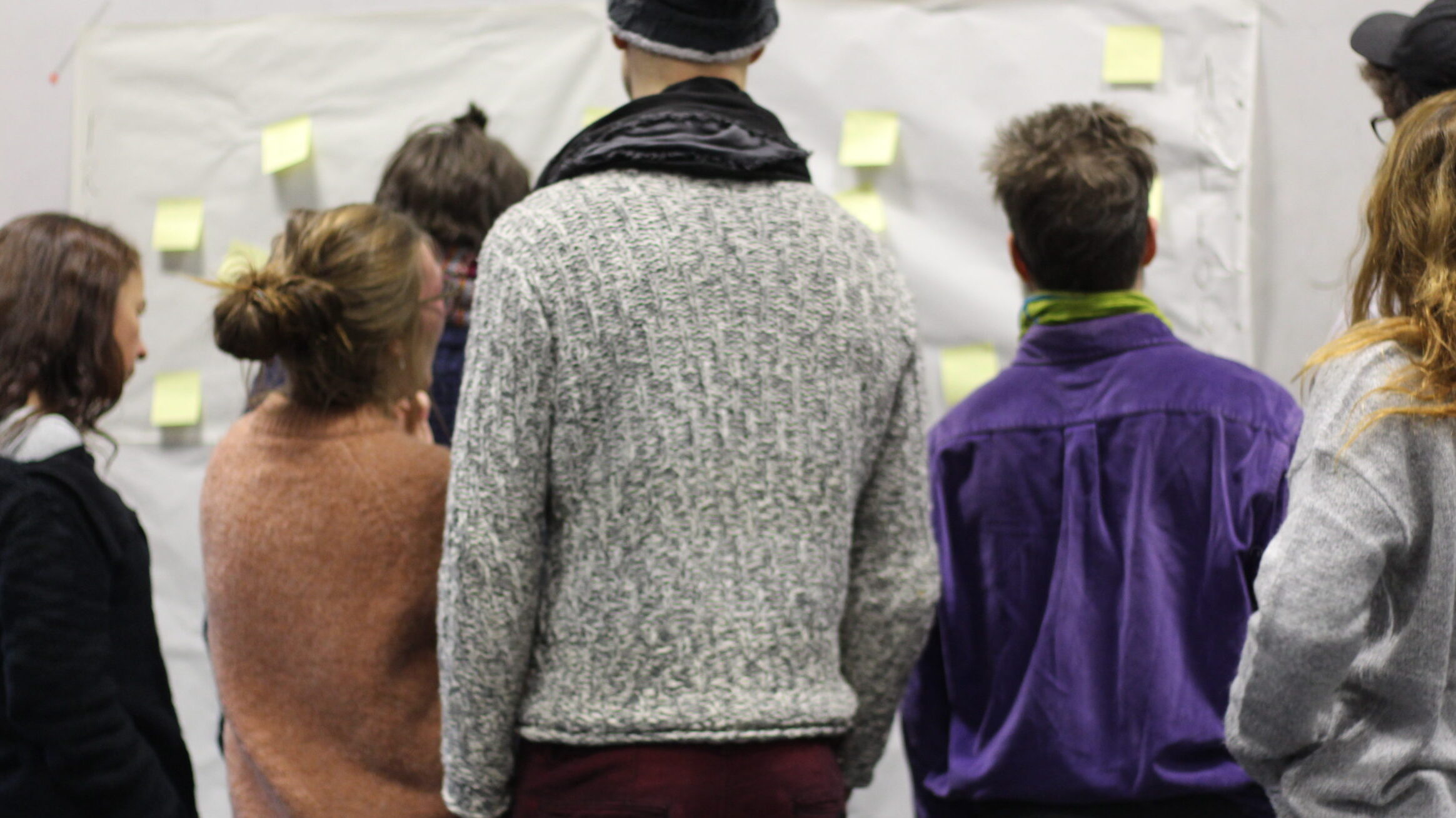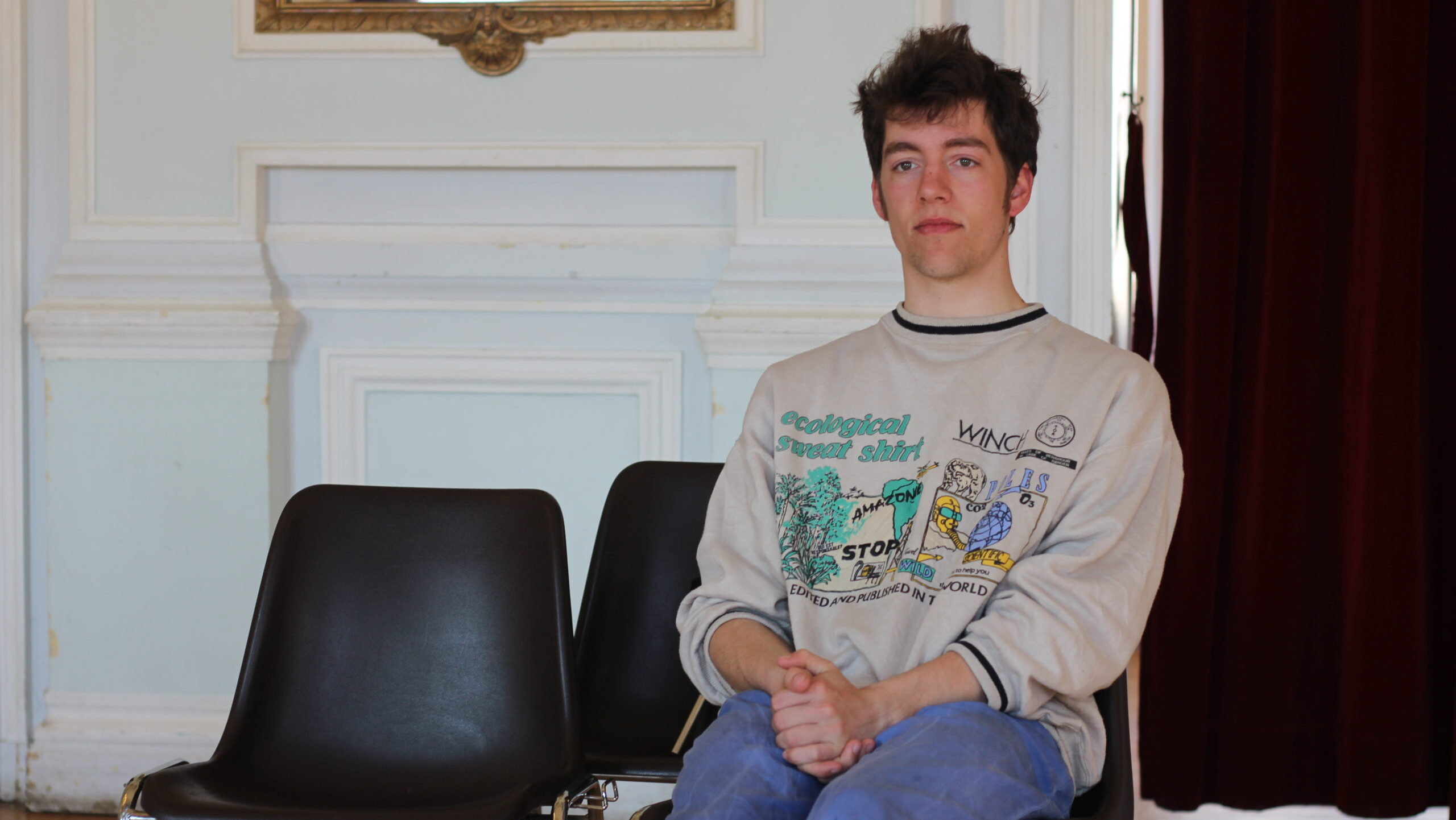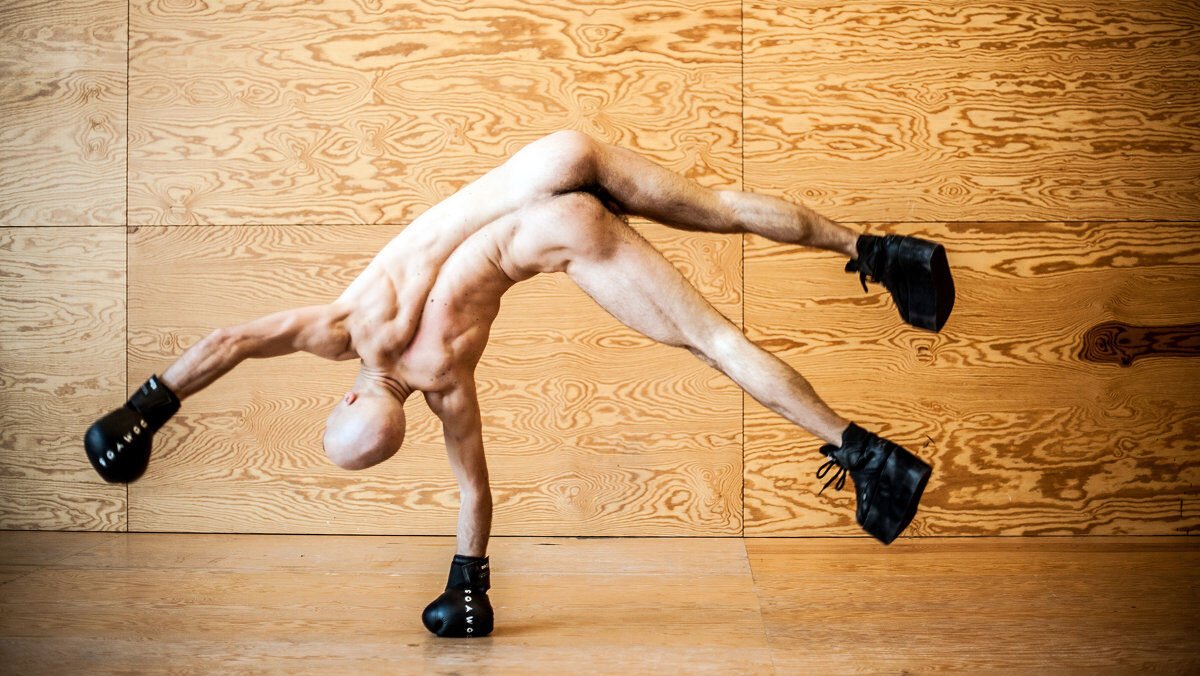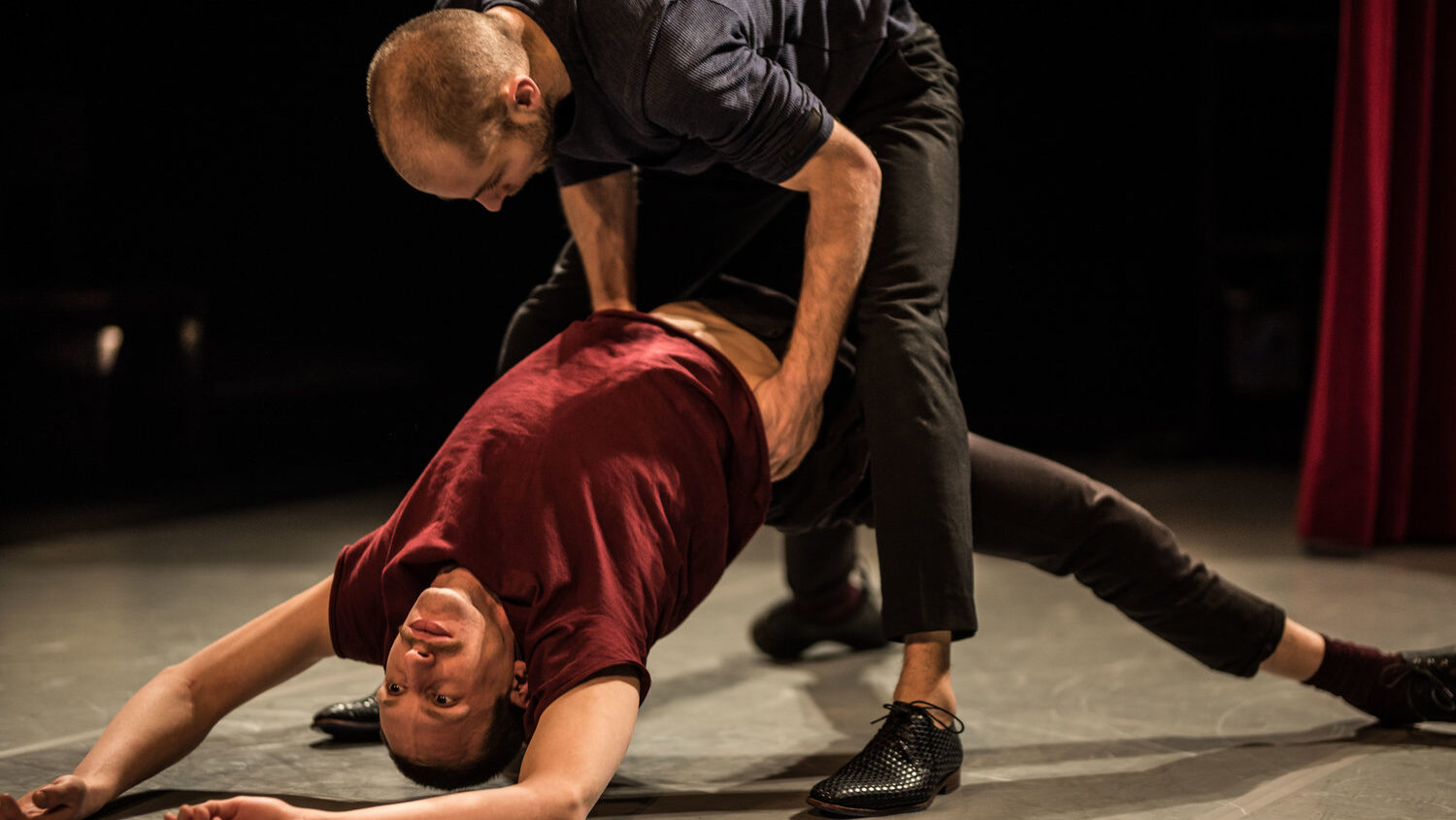A Certain Skill
So when I first heard about Bauke’s attempt to define circus or talk about circus in this way I felt personally at risk – or even offended. It was a feeling like, ‘Oh no, she’s going to say what is circus and what is not’, and I was afraid a little bit.
But then I started to actually reflect on what is circus or what it could be – not in connection to my work per se, because in my definition I don’t know if I even make circus. I don’t know if I make art, so actually it’s completely aside from that.
So I thought for a long time about a definition, and for me the first sentence that came to mind was: ‘Circus is a physical language that could function as a medium for art.’ I think it’s used like this, so for me it’s quite obvious.
I say can function because I think not every form of circus is also art.
Then I thought that it’s also a physical language that we require a certain skill to speak. I think skill is a part of circus – Michiel said that circus is an exploration of possibilities, but for me I think perhaps it is the result of the exploration that is circus. So I would say that skill is something that you deliberately train yourself to do through repetition, and at the end of that process of training you have circus skill. The kind of skill, or level of skill, is not so important: so I think you could create a circus skill with an ordinary cup; trying to balance a cup on your nose for example, when you succeed we could call it circus.
The skill can concern objects but also the artist’s own body – or other people. And then when I say that it can be an artistic expression I mean that circus can express certain things. It’s a really complicated matter, because though I think skill is part of the language of circus, it is always, by default, communicating something about physical boundaries and hard work. The always communicates this, I think; it is a layer you cannot ignore, it is always there. So it communicates this, but then the way that the artist on stage relates to their skill opens a space where I think are greater possibilities.
For example, you could relate to a skill by being really proud of it, and wanting to show it off; or you feel as though you were forced by someone or something to show it. I think there is a wide array of things you could feel about a skill, and inside this range I think circus has the capability to communicate existential stories.
I think it’s important to always keep the connection between the physical – so the thing you’re doing – and what is being communicated, and in my opinion I don’t think there is anything the circus is unable to communicate.
And then the last element of my definition of circus is that it is happening in the present: it’s brought in front of a live audience and it’s with human actors. The audience is really important for me; they’re a part of the happening, of the artistic happening of circus.


